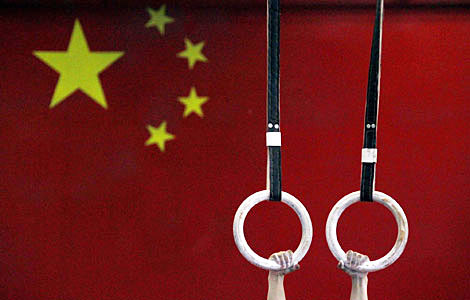BEIJING - China should be cautious in loosening its monetary policy to avoid pushing up inflation, as the credit crunch for small- and medium-sized enterprises (SOEs) can be solved without a policy overhaul, an expert said Saturday.
China is not short of money because individual households hold trillion dollars of savings across the nation, said John Quelch, dean and vice president of the Shanghai-based China Europe International Business School (CEIBS).
"Under the circumstances, what requires is that the SMEs have easier access to credit that does exist there to be loaned," Quelch told Xinhua when attending an opening ceremony for an EMBA program by the CEIBS.
To cool inflation, China has been sticking to a prudent monetary policy. The country's central bank raised banks' reserve requirement ratio (RRR) six times and benchmark interest rates three times last year, causing fund shortage for SMEs.
"I think the structural challenge can be corrected without having to take a wholesale of approach to loosen the monetary policy," Quelch said.
With China's growth hitting a nearly three-year low of 8.1 percent in the first quarter of the year, the market widely expects a bolder step in monetary loosening following two RRR cuts over past five months.
Quelch said the government should channel the money to the SMEs through a broader range of financial institutions, as large banks are more risk conscious and reluctant to go into the inconvenience of helping the SMEs.
He said China's endorsement of experiments in the southern city of Wenzhou to allow private capital into community banks, is a more sensible choice to provision local loans to local small businesses.
In late March, China approved a plan to set up a pilot zone in Wenzhou to regulate private financing, as the city's private businesses turned to underground lenders because of difficulties to get normal loans amid government tightening.






